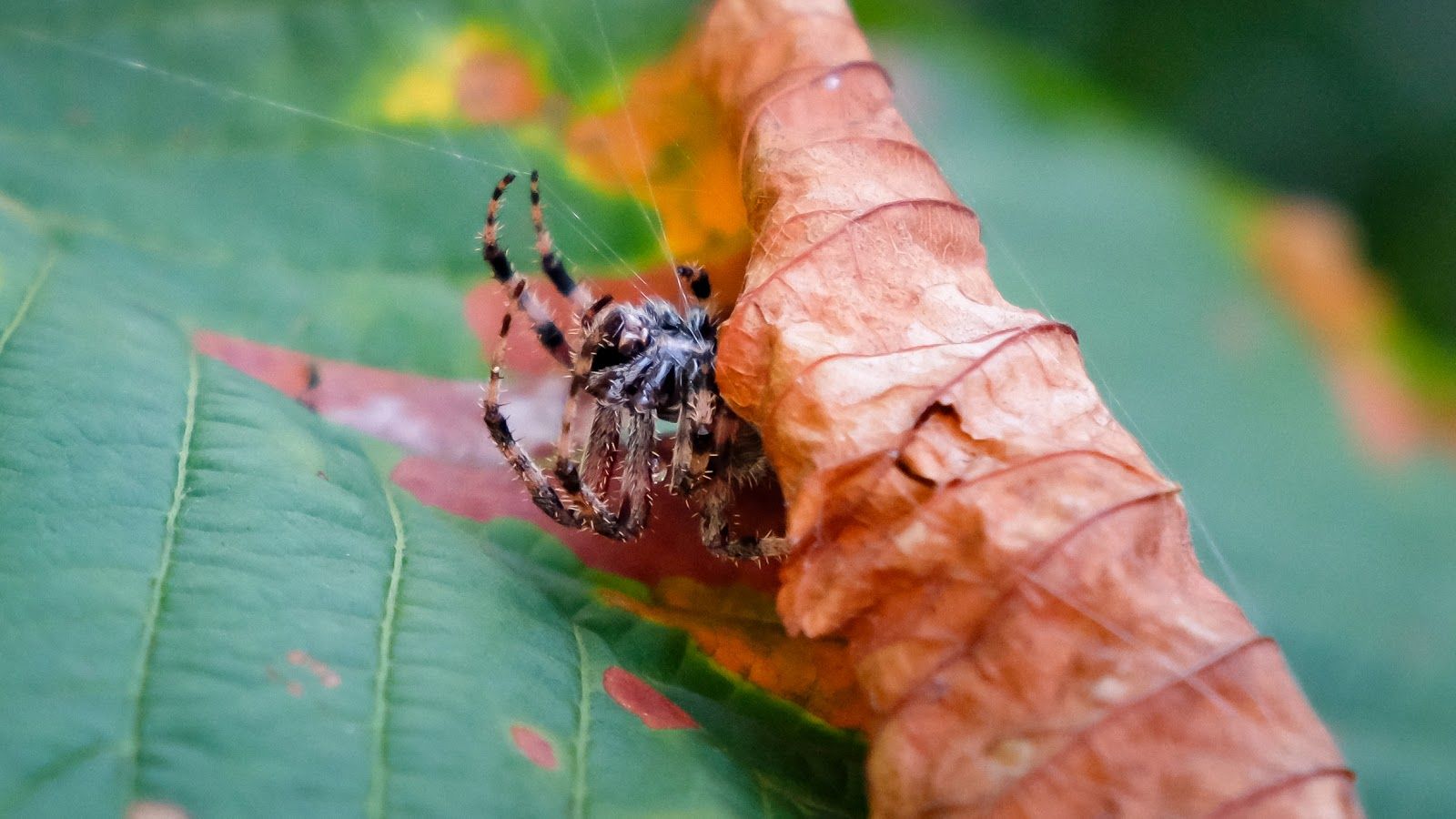This site uses cookies – Learn more.
2020 Creepy Crawlers
2020 Creepy Crawlers

As a managed green space, Madison Square Park is a vital source of food and shelter for native and migrating fauna throughout the year. As the spookiest season of the year takes center stage, it’s only appropriate that we reflect on a few creepy crawlers observed at Madison Square Park.
Spotted Orbweaver (Neoscona crucifera)
Arachnophobes, look away! Rainy seasons and hardwood trees make an ideal habitat for Neoscona crucifera. Orbweaver spiders are nocturnal species for most of the year. As night falls, these architects of entrapment will set their orb-shaped webs, which can reach about 2 feet in diameter, between branches and shrubbery. Then they patiently wait for the pull of silk—a sign of a struggle picked up by hypersensitive hairs on the spider’s body. The orbweaver will descend onto its prey, paralyze them with venom, wrap them in silk, and store them for a later meal. As summer turns to fall, adult females will bring their hunting prowess to daylight. This may be due to their need for additional food for developing eggs and a decrease of nocturnal prey in the cooler fall nights.
Hanging Thieves AKA Robber Flies (Genus Diogmites)
Hanging thieves are the vampires of the insect kingdom. These mysterious, chilling creatures hang off branches, patiently waiting for passing prey before they swoop in and ambush them in mid-flight or directly off the ground. Once captured, their prey are injected with venom that paralyzes them and liquifies their innards—similar to spiders. Their prey’s corpse is then carried to a secluded area. (This next bit is where Diogmites gets their common name of hanging thieves.) They will hang from plant stems or leaves suspended by one or both front legs, with the other four legs holding and manipulating the prey, turning its body over and around, and inserting its proboscis into the captive corpse to drink their liquified remains!
Nightcrawlers (Lumbricus terrestris)
Earthworms are vital to soil health because they transport nutrients and minerals from below to the surface via their waste, and their tunnels aerate the ground. Unlike most other earthworms however, nightcrawlers are anecic worms. This means they often build temporary vertical burrows and come to the surface to feed, as opposed to eating while burrowing through the soil like most other earthworms. Nightcrawlers can be found on the soil surface especially at night where they are usually seen feeding above ground (hence their name). While they generally feed on plant material, they have been observed feeding on dead insects and feces!
Local birders, naturalists, and online data collection platforms such as eBird and iNaturalist help us track biodiversity. To learn more about the birds and other flora and fauna throughout Madison Square Park, visit eBird and iNaturalist or read more about our ongoing initiative to support our local wildlife.



